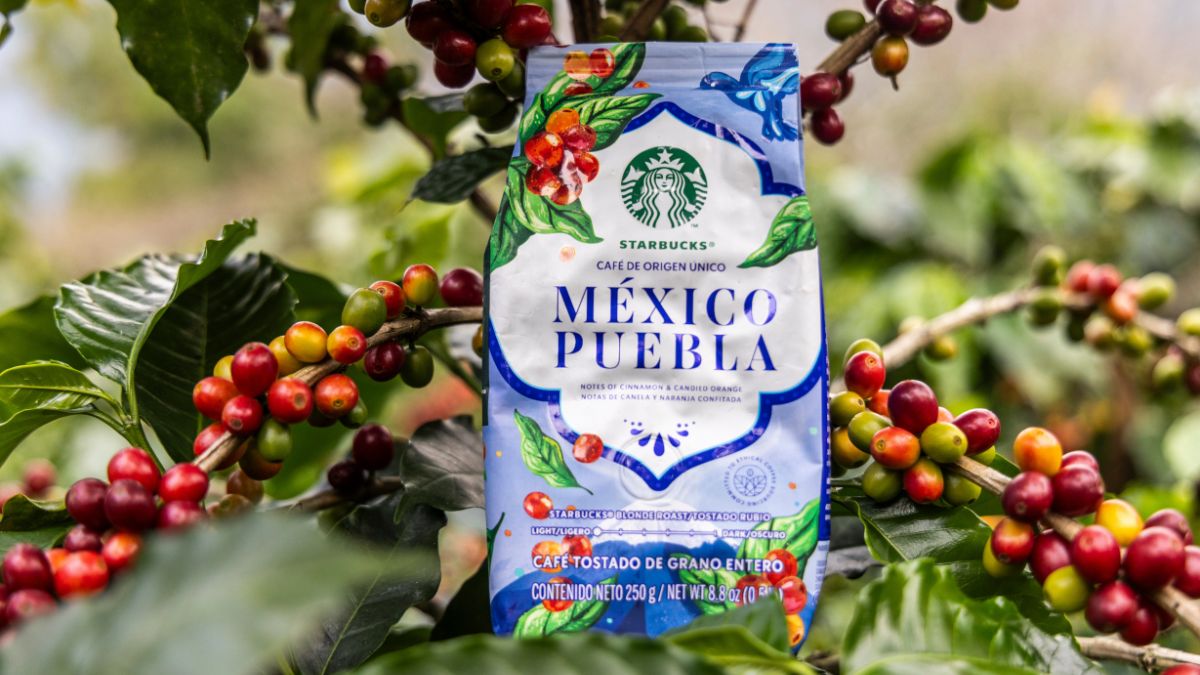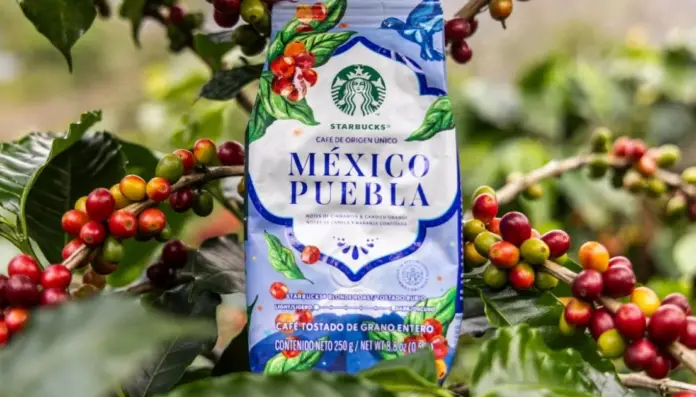
Starbucks launched a new Mexican single-origin coffee: Starbucks Mexico Puebla. This coffee comes from the volcanic highlands of the Sierra Norte de Puebla.
Starbucks Mexico Puebla is a specialty Arabica coffee, grown by more than 1,350 small producers, many of them indigenous Totonacs, who have inherited and perfected the art of coffee cultivation through generations.
What does Starbucks’ new Puebla coffee taste like?
Starbucks Mexico Puebla offers a distinctive flavor profile, which conquers from the first sip. With notes of cinnamon, candied orange and a subtle sweetness of cane sugar, this coffee evokes the gastronomic richness of the region.
Its signature Starbucks blonde roast brings out bright acidity and a medium body, creating a balanced and delicious drink. The experience is perfectly complemented by pairings such as baking spices, cocoa and nuts, making it the ideal choice for any time of day.
What is the impact of Starbucks coffee on Puebla communities?
The brand reported that this new coffee seeks to reaffirm its commitment to sustainability and social impact. Through its C.A.F.E. (Coffee and Farmer Equity) Practices, the company has collaborated closely with Puebla coffee growers since 2018, improving the productivity and quality of crops, while generating tangible benefits for families and communities. This approach guarantees high-quality Mexican coffee and also contributes to the economic and social development of the region.
Máximo Ponce García, a Totonac producer from Zongozotla, is an example of the impact. Thanks to Starbucks’ technical support and programs, Máximo not only increased the production of his farm, but was also able to fulfill his dream of providing a professional education to his children.
For his part, Ricardo Arias-Nath, senior vice president and president of Starbucks in Latin America and the Caribbean, said: “This coffee celebrates the enormous cultural wealth of the state, as well as the effort and passion of its farmers.”
He added: “We are excited to be able to offer our customers a coffee that connects exceptional flavors with the history of its land of origin and the sustainability of its production, since these characteristics are what distinguish Starbucks coffee products.”
Starbucks Mexico Puebla, a special coffee from the packaging
The packaging of Starbucks Mexico Puebla is inspired by the iconic Talavera Puebla, a handcrafted ceramic with Denomination of Origin, the design pays tribute to the cultural and artisanal wealth of the state.
The detailed colors and patterns reflect the identity of Puebla, while the silhouettes of the majestic Popocatépetl and Iztaccíhuatl volcanoes evoke the unique landscape that nourishes these exceptional beans. Every detail of the packaging tells a story and connects the consumer with the land of origin of this coffee from Puebla.
Limited availability
Starbucks Mexico Puebla will be available in selected Starbucks stores in Latin America and the Caribbean starting January 7, while supplies last.
Facts and statistics on coffee consumption in Mexico
Coffee consumption in Mexico shows an increasing trend, with a total consumption of 3.1 million 60 kg bags in 2023/24 and a stable projection for 2024/25.
Instant coffee represents approximately 60% of consumption, demonstrating the preference for practicality, although specialty coffee, such as Starbucks coffee, is rapidly gaining ground.
By 2024, home consumption is expected to reach 73.27 million kg, while out-of-home consumption is estimated at 6.42 million kg.
Per capita consumption at home is projected at 0.57 kg. In terms of revenue, the coffee market in Mexico is set to generate approximately US$3.08 billion in 2024, with a clear split between at-home (US$1.30 billion) and out-of-home (US$1.77 billion) consumption.
In addition, ready-to-drink (RTD) coffee is gaining popularity, with an expected market volume of 25.35 million liters in 2024 and projected annual growth of 4.91% between 2024 and 2029.
Source: merca20




